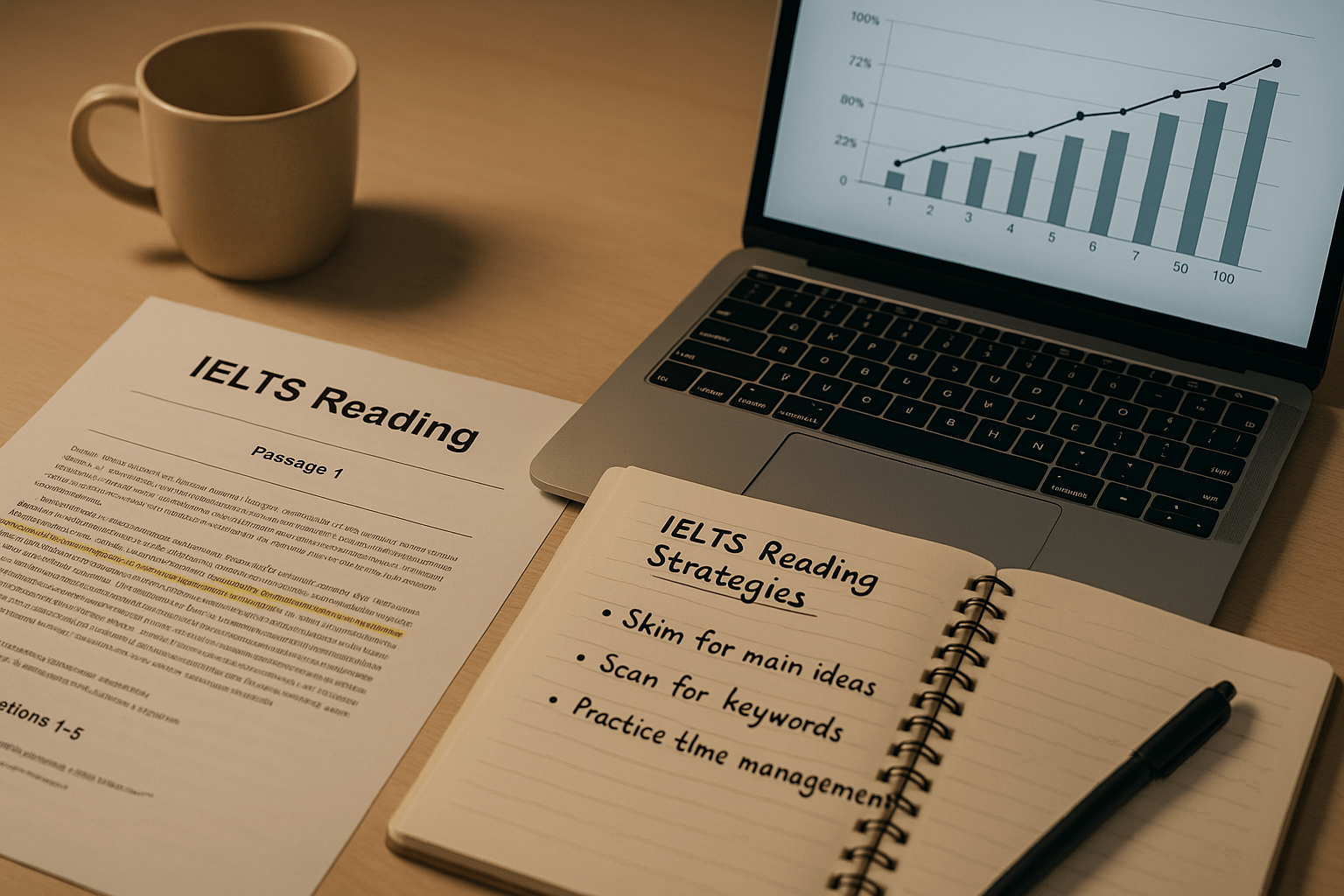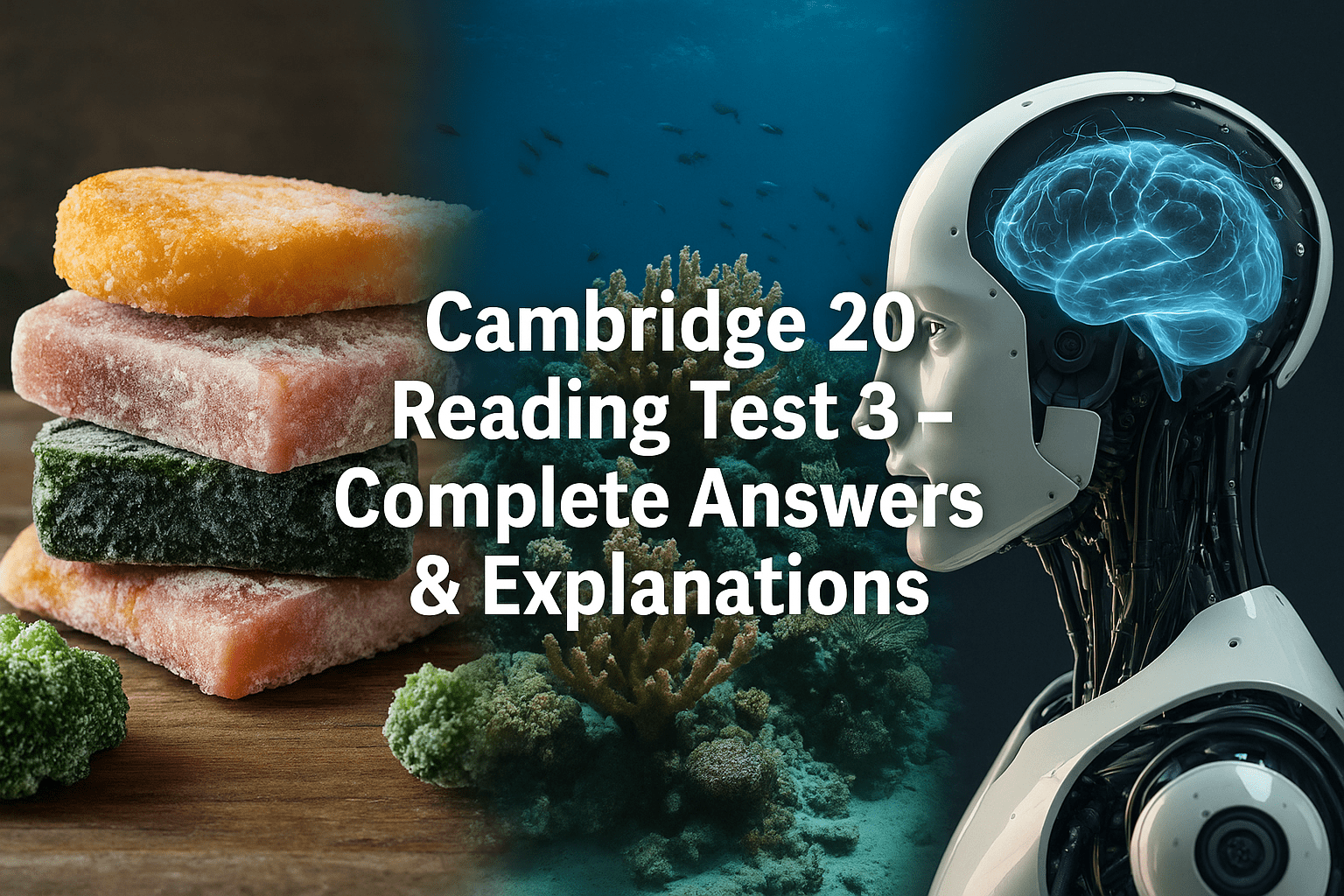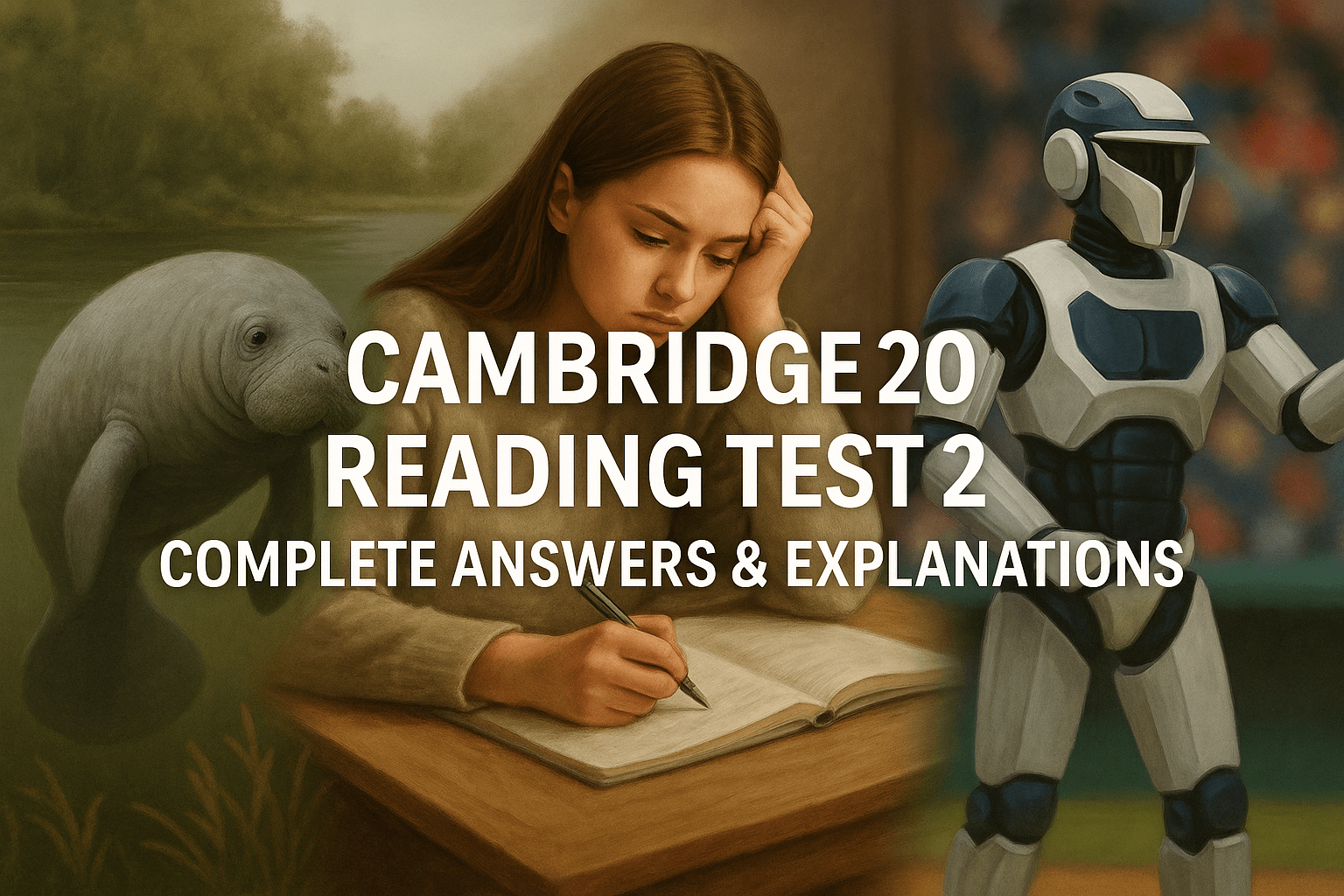If you’ve ever felt stuck at a Band 6 in IELTS Reading, you’re not alone. Over the years, I’ve taught thousands of students worldwide, and many told me the same thing:
“Teacher, I can understand English… but my IELTS Reading Band Score just won’t move up!”
The good news? With the right strategies, scoring awareness, and practice techniques, moving to Band 7–9 is absolutely achievable. In this guide, I’ll share how IELTS Reading scoring works, real challenges my students faced, and the step‑by‑step strategies I’ve used to help them succeed.
Understanding IELTS Reading Band Scores
Before we talk about strategy, you need to understand how your IELTS Reading Band Score is calculated. Many students think it’s just about “reading faster,” but scoring has a clear system.
The Reading test has 40 questions, and your raw score (number of correct answers) converts into a band score from 0–9. Academic and General Training tests have slightly different conversion tables.
I break this down in detail in my IELTS Reading Band Descriptors and Scoring Guide, where I show exactly what examiners expect and how your accuracy impacts your final score.
If you want to check exactly what score you need to hit Band 7, 8, or 9, this Raw Score to Band Score IELTS Reading Table is a lifesaver.
Why Most Students Get Stuck Below Band 7
In my experience, three main issues keep students from moving past Band 6.5:
- Reading too slowly and running out of time in Section 3.
- Misunderstanding tricky question types, like True/False/Not Given.
- Panicking under pressure, leading to avoidable mistakes.
I remember one of my students, Aisha, who always scored 26/40 in practice. She knew English well, but she read every word carefully, losing precious minutes. Once I trained her to skim and scan strategically and focus on keywords, her score jumped to 34/40 in just four weeks.
If you’ve faced similar frustration, I promise — it’s not your English level holding you back. It’s about exam skills and time management.
Step‑by‑Step Strategies to Reach Band 7–9
Over the years, I’ve developed a proven system that consistently helps students improve. Here’s how to approach IELTS Reading like a high scorer:
1. Master Core Reading Skills
Start with the foundation skills that separate Band 7–9 readers:
- Skimming for main ideas: Quickly understand the general topic of each paragraph.
- Scanning for details: Train your eyes to locate numbers, names, and keywords fast.
- Understanding paraphrasing: IELTS loves to change the wording in questions.
I cover my complete framework in The Complete IELTS Reading Strategy for Band 7–9, where I show how to combine skills to maximize accuracy.
2. Focus on High-Impact Question Types
Not all questions are equal. My top‑performing students spend extra time mastering:
- True / False / Not Given – The trickiest for most candidates.
- Matching Headings – Demands excellent skimming.
- Summary / Table Completion – Tests vocabulary and synonym recognition.
One student from Vietnam, Minh, once told me:
“I lost 6 marks just on True/False/Not Given.”
After learning my elimination technique and doing targeted practice, he consistently scored Band 8.
3. Avoid the Classic Scoring Mistakes
Even strong English speakers lose marks from simple errors. I’ve seen this pattern repeat across hundreds of students:
- Misspelling answers
- Adding extra words in short-answer questions
- Not transferring answers carefully to the sheet
I’ve written a dedicated guide on IELTS Reading Score Mistakes to Avoid because one small mistake can cost a whole band.
4. Build Stamina with a 30‑Day Improvement Plan
Many learners underestimate exam stamina. Reading 3 long passages in 60 minutes is mentally exhausting if you’re not prepared.
I often recommend my 30‑Day IELTS Reading Improvement Plan for students who plateau. This plan mixes timed practice, vocabulary review, and mock tests to build both speed and accuracy.
Real Student Success: From Band 6 to Band 8
One of my proudest stories is about Ravi, an engineer from India. He needed Band 8 in Reading for immigration but was stuck at 6.5 for months.
We focused on:
- Analyzing his mistakes instead of just practicing endlessly
- Learning paraphrasing patterns and synonyms
- Practicing under real exam conditions
After six weeks, he scored 36/40, which is Band 8. His message after the test said:
“Your step‑by‑step plan was the breakthrough I needed!”
FAQs About IELTS Reading Band Scores
1. How is the IELTS Reading Band Score calculated?
Your score is based on the number of correct answers out of 40. This raw score is then converted to a band score using a table.
2. Is Academic Reading scoring different from General Training?
Yes. GT Reading passages are easier, so you need more correct answers for the same band score.
3. Can I get Band 9 in Reading without perfect English?
Absolutely — I’ve seen students reach Band 9 with excellent exam skills, even if their general English wasn’t native‑level.
4. What’s the fastest way to improve by 1 band?
Focus on question analysis, time management, and reducing careless errors. Blind practice without feedback rarely works.
Final Thoughts: Your Path to Band 7–9
Improving your IELTS Reading Band Score isn’t magic — it’s a skill set. Once you understand how scoring works, eliminate classic mistakes, and practice strategically, Band 7–9 is within reach.
If you want to follow a proven plan, start with my step‑by‑step IELTS Reading Strategy for Band 7–9 and track your progress with the Raw Score to Band Score Table.
I’ve seen hundreds of students achieve their dream scores — and with focus and the right approach, you can too.






5 Responses